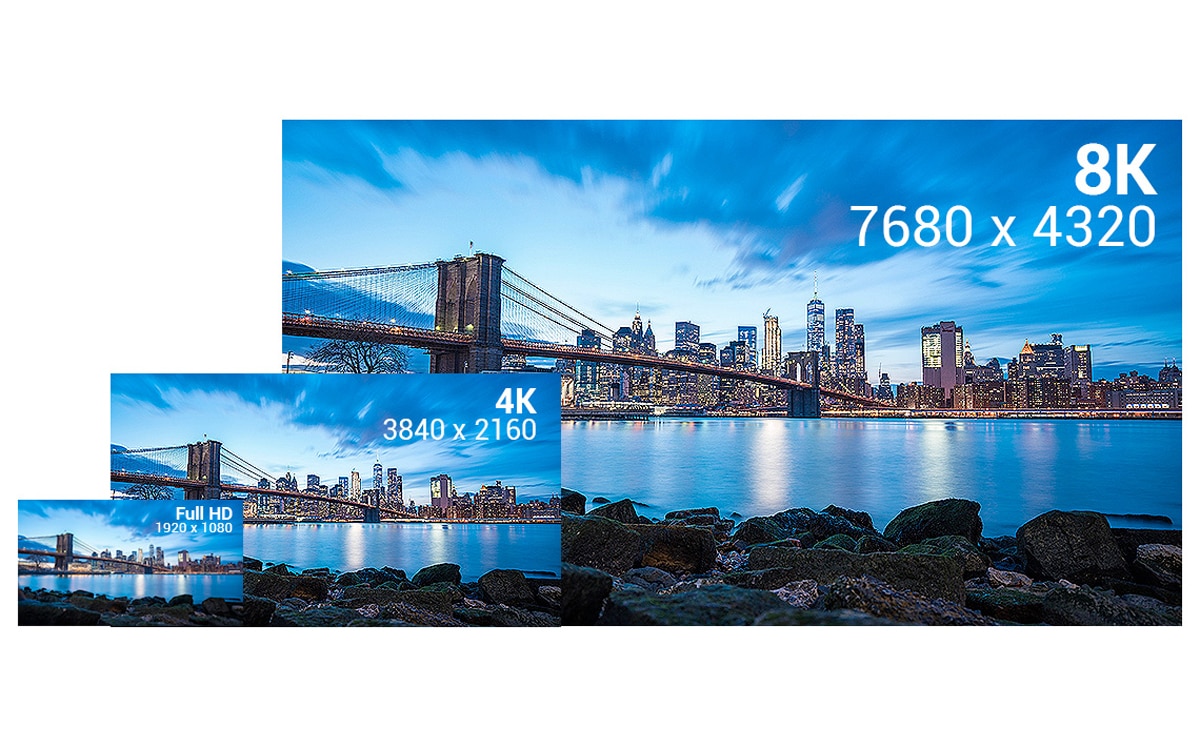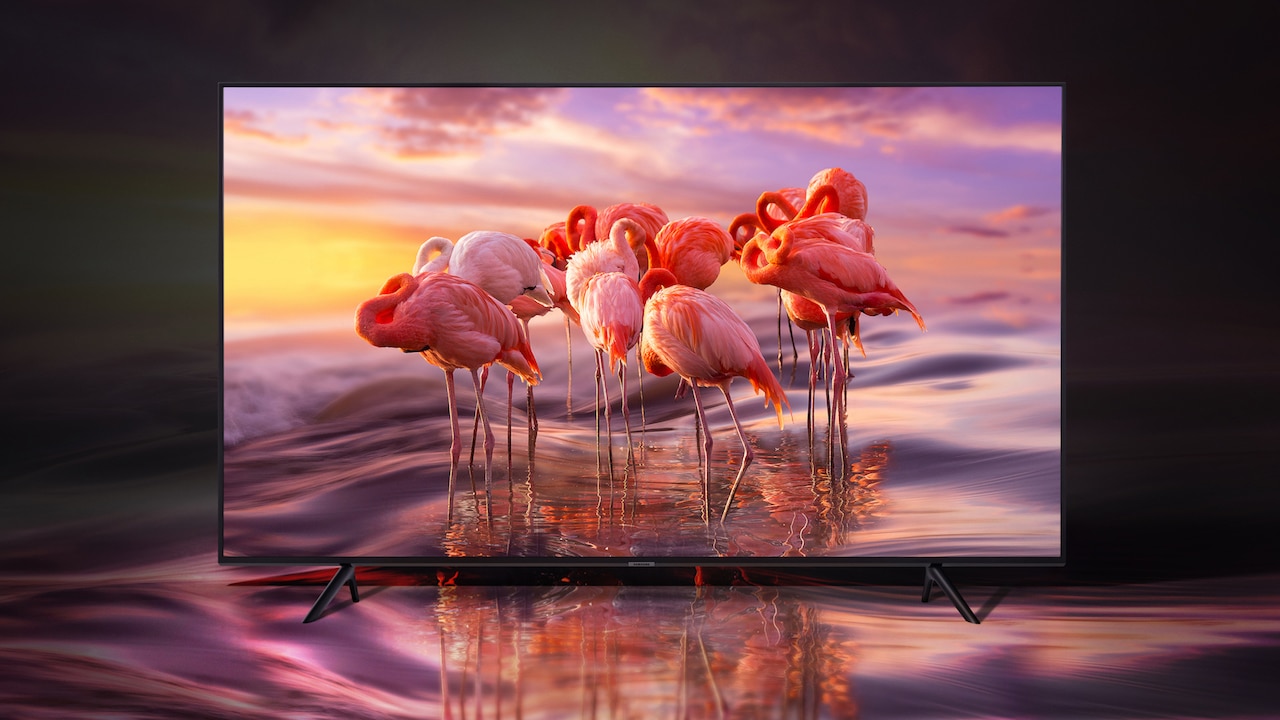Technology is forever changing and advancing to meet the times, and with those changes come a whole host of new terms and technical jargon. It can be difficult to navigate your way through even the world of TVs, trying to decipher the difference between things like OLED or QLED TVs, or what a ‘refresh rate’ is.
Perhaps two of the most frequently misunderstood terms in the world of TV are ‘4K’ and ‘8K’. Not sure what everyone means when they talk about 4K TVs and 8K TVs? At Reliant, we have numerous years of experience with TV and its ever-changing technologies, so allow us to take you through the biggest crucial differences between 4K and 8K, and make sense of this new frontier in TV tech!
The Difference Between 4K And 8K
Put simply, the difference between 4K TVs and 8K TVs comes down to total resolution. A 4K TV has a pixel count of 3840 x 2160 pixels, while an 8K TV has double the resolution, at around 7680 x 4320 pixels. This means that 8K TVs are able to output images with much clearer detail, even on the largest of screens!
The 3840 x 2160 resolution of the 4K TV, introduced around 2012, made it a very significant upgrade from the standard 1920 x 1018 displays of 1080p TVs that were popular in the late 2000s and early 2010s. Because of the sheer density of pixels found on a 4K screen, it is impossible to make out individual pixels with the naked eye, leading to a much clearer and more pleasing image that is much truer to life.
Since its introduction, 4K has been the standard bearer for Ultra HD technology, though it has since been usurped by the equally impressive 8K. 8K TVs are made up of a total resolution of around 7680 x 4320 pixels, making them significantly greater in terms of detail and fidelity. And, of course, this also means that 8K TVs are able to stretch to much greater screen sizes without sacrificing image quality.
4K TVs have total resolutions of around 3840 x 2160 pixels, while 8K TVs have a total resolution of around 7680 x 4320. This makes 8K TVs two times as crisp and clear as a standard 4K TV. Which one you choose will depend on the picture quality you want!
4K vs 8K
4K Ultra HD TVs are incredibly impressive when it comes to visual fidelity, and there is plenty of content available on the market to help users take advantage of this. Fans of film can pick up the latest blockbusters on 4K UHD Blu Rays, allowing them to experience cinema quality right from the comfort of their own home.
Many of the most popular online streaming services also offer a massive range of content in 4K resolutions, including Netflix, YouTube, and Amazon Prime Video, so you can immerse yourself in the most popular box sets from across the world. You can also tune in to live satellite TV in crisp UHD, to feel like you are at the latest sporting events, or even right there in the audience at a sold-out concert!
4K displays are also fantastic TVs for gamers, as many top-of-the-range consoles, like the PlayStation 5, and the Xbox Series X allow 4K output of the latest games, making it much easier for players to jump into their favourite digital worlds.
Unfortunately, when it comes to 8K content, there is a little less available, due to 8K technology still being in its infancy. Video game consoles do not currently output to 8K, and there is very little content online that is designed to output in 8K, save for a small number of YouTube videos. However, companies like Sony have already made significant plans to begin producing 8K content.

Is 8K Worth It?
Though there is not yet much 8K content available to take advantage of 8K’s improved resolution, we can say that an 8K TV would still be a great purchase, when it comes to future-proofing.
Content
As we mentioned, 8K content is beginning to enter wider development, with more film studios adopting 8K cameras into their productions, and with multiple software companies looking to upgrade their games to run at a native 8K on modern gaming consoles. This means that you will be ready for 8K entertainment as soon as it becomes widely available.
Upscaling
In the meantime, you need not miss out on the best that your 8K TV can offer. Most 8K TVs come with built-in processors that are able to actively upscale all manner of HD content to an 8K resolution. If you have a library of 4K Blu Rays that you want to truly get the most out of, then 8K upscaling is totally worth a spin.
Cost
However, when it comes to 8K TVs, you will need to very carefully consider your budget. 8K TVs are still very much a novelty, and as such, 8K TVs are far more costly than your average 4K TV. This price will also naturally increase depending on things such as screen size, and whether the TV employs 4K QLED or 4K OLED technology.
If you are looking to spend a little less, but still want to make the most of UHD content, then a 4K TV should suit you just fine. 4K content has incredible fidelity that can make the most of even the largest TV screens.
However, though 8K TVs are very costly, they are a fantastic investment if you are looking towards the future. With films, TV shows, video games, and online content consistently improving in visual fidelity with every passing year, it makes sense to have an 8K TV ready for it all!
Frequently Asked Questions
Is 8K Worth It Over 4K?
If visual fidelity is of vital importance to you, then an 8K TV may be a worthy upgrade from your 4K TV. With double the pixel count, images appear crisper, and action looks much smoother. However, you will want to keep in mind that there is less 8K content than 4K content available to make the most of the screen, at the moment.
Is 8K TV Overkill?
An 8K TV could only truly be considered ‘overkill’ if you were to purchase an expensive model and not make use of all of its best features. 8K TVs are very costly, so if you were to use yours just to enjoy 4K content or content at lower resolutions, then it might be considered a wasted investment.
How Far Should You Sit From An 8K TV?
The average distance you should sit from any screen is around 1.5 times the vertical size of the screen. This general distance will allow you to best enjoy the quality of the image. If a screen is of a lower resolution, then you may need to sit a little closer to the screen.
What Size TV Is Best For A Bedroom?
Generally, it is best to go for a slightly smaller TV in a bedroom, but how small you go will depend on the amount of space in the room. A larger bedroom may have the space for a much larger TV. You will need to carefully consider the distance between the TV, and your favourite spot to sit on the bed.





